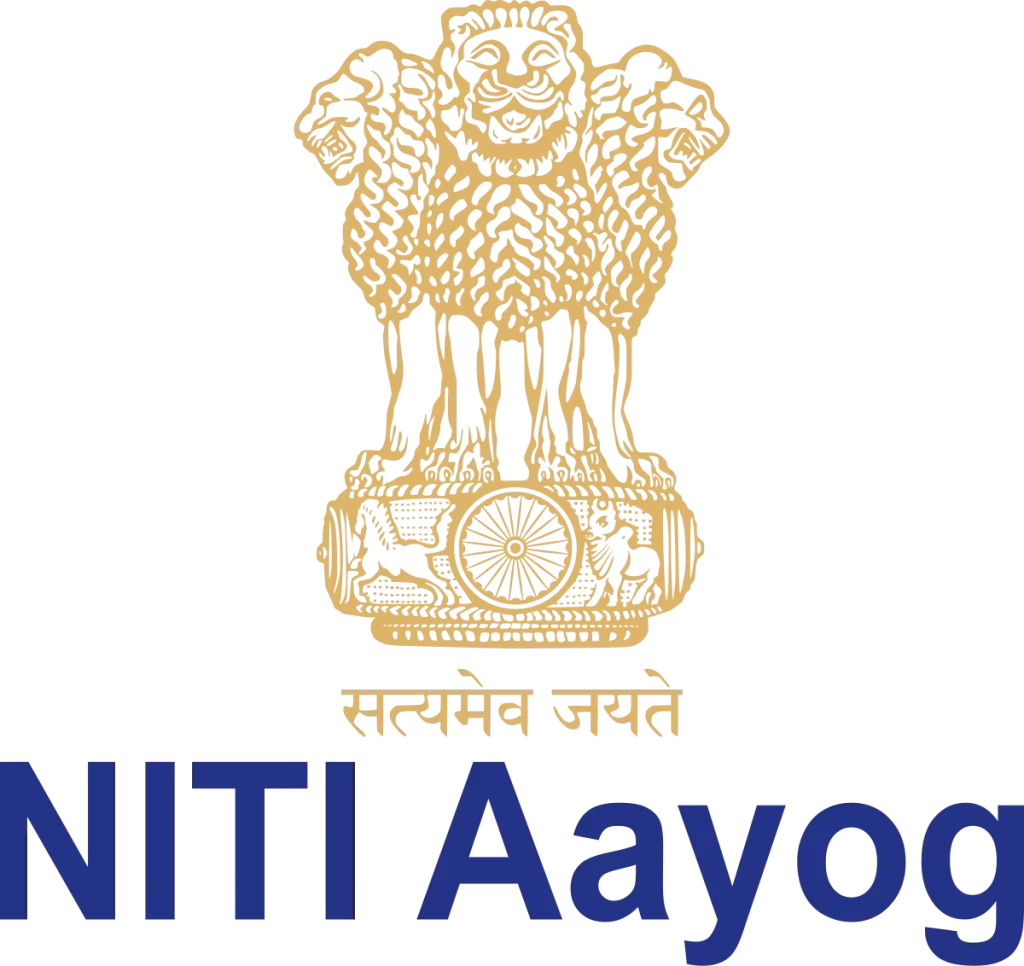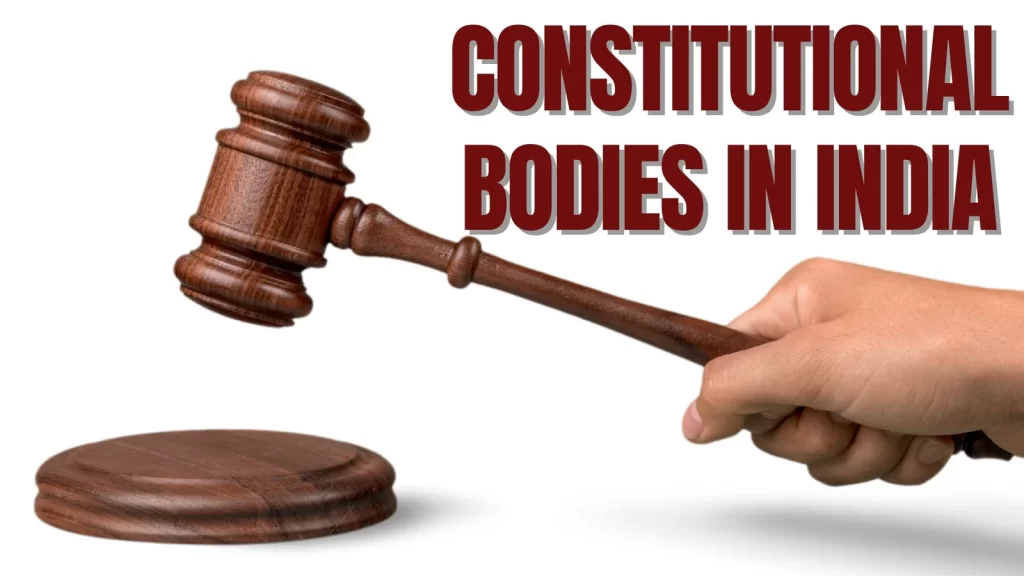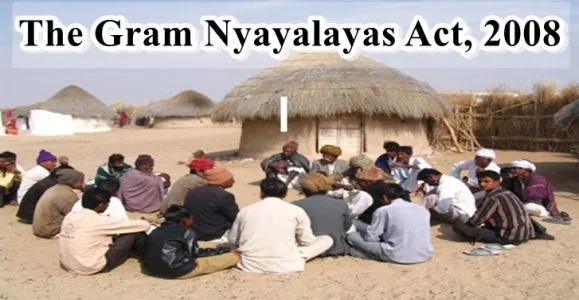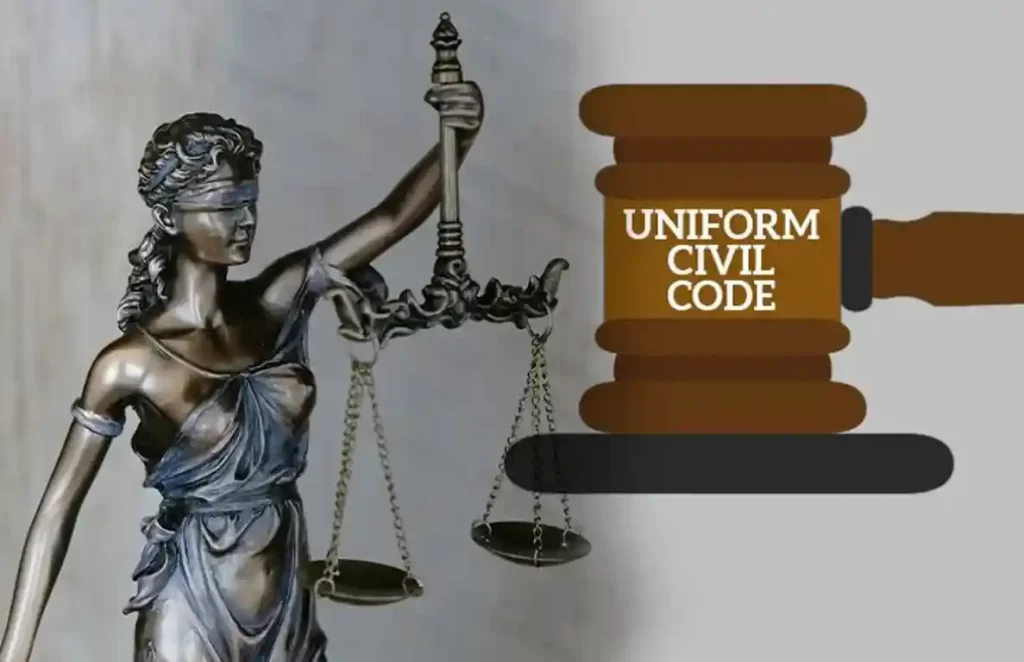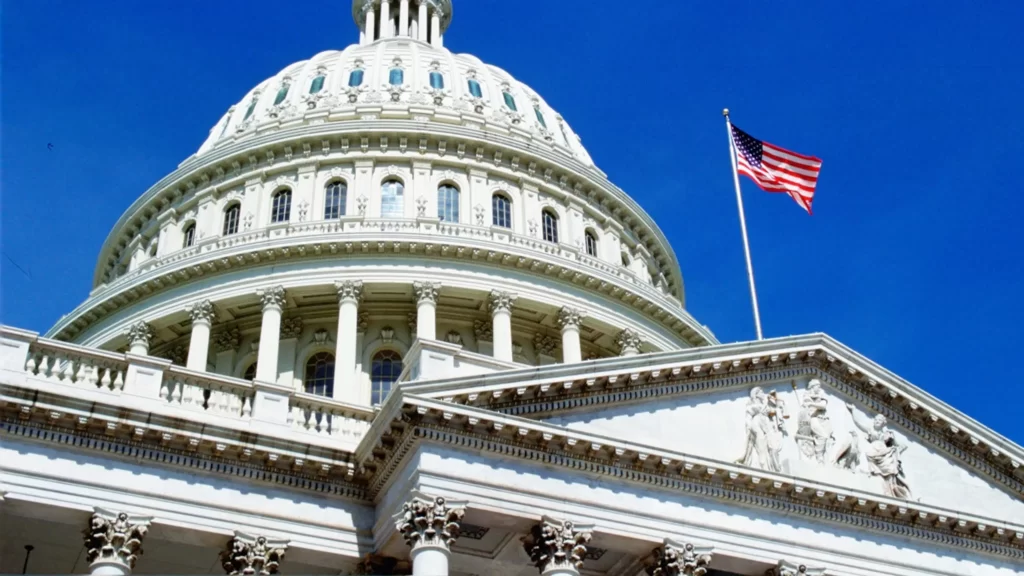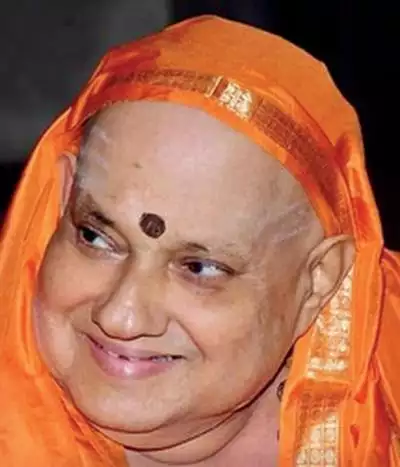Introduction of Fundamental Rights
The Fundamental Rights are enshrined in Part III of the constitution from Articles 12 to 35. Fundamental rights are the basic human rights enshrined in the Constitution of India which are guaranteed to all citizens. They are applied without discrimination on the basis of race, religion, gender, etc. Significantly, fundamental rights are enforceable by the courts, subject to certain conditions.
- Fundamental Rights are taken from the Constitution of the USA (i.e. Bill of Rights).
- Part III of the Constitution is described as the Magna Carta of India.
- Magna Carta is the Charter of Rights issued by King John of England in 1215 under pressure from the Barons. This is the first written document relating to the Fundamental Rights of the Citizens.
- The Fundamental Rights are meant for promoting the ideal of political democracy.
Why are they called Fundamental Rights?
These rights are called fundamental rights because of two reasons:
- They are enshrined in the Constitution which guarantees them
- They are justiciable (enforceable by courts). In case of a violation, a person can approach a court of law.
List of Fundamental Rights
There are six fundamental rights of the Indian Constitution along with the constitutional articles related to them are mentioned below:
- Right to Equality (Article 14-18)
- Right to Freedom (Article 19-22)
- Right against Exploitation (Article 23-24)
- Right to Freedom of Religion (Article 25-28)
- Cultural and Educational Rights (Article 29-30)
- Right to Constitutional Remedies (Article 32)
Why Right to Property is not a Fundamental Right?
- This was because this right proved to be a hindrance towards attaining the goal of socialism and redistributing wealth (property) equitably among the people.
- The right to property was deleted from the list of Fundamental Rights by the 44th Amendment Act, 1978. It is made a legal right under Article 300-A in Part XII of the Constitution.
Fundamental Rights (Articles 12 to 35)
Article 12: Defines State which includes:
- The Government and Parliament of India,
- The Government and legislatures of the states,
- All local authorities and
- Other authorities in India or under the control of the Government of India.
Article 13: Laws inconsistence with Fundamental Rights
- Provides shield to Fundamental Rights by declaring that all laws, which are inconsistent with or in derogation of any of the Fundamental Rights, shall be void to the extent of their inconsistency.
- Here the terms law includes ordinance, order, bye-law, rule, regulation, notification, custom or usage.
- Thus, Article 13 imposes an obligation on the State to respect and implement the Fundamental Rights and provides the Judiciary the Judicial Review power.
- Further, Article 13 declares that a constitutional amendment is not a law and hence can not be challenged.
- However, the Supreme Court held in the Kesavananda Bharati case that a constitutional amendment can be challenged on the grounds that it violates a fundamental right that forms a part of the ‘basic structure’ of the Constitution and hence, can be declared as void.
Article 14: Equality before the Law or the Equal Protection of Law
- It says that state shall not deny to any person equality before the law or the equal protection of the laws within the territory of India.
- Two aspects are there:
- Equality Before Law: A negative concept, where no man is above law. It ensures juristic equality under the constitution. Equality is antithetic to arbitrariness. Equality and arbitrariness are sworn, enemies.
- But certain exceptions to it are, the president of India, state governors, Public servants, Judges, Foreign diplomats, etc., who enjoy immunities, protections, and special privileges.
- Equal Protection of Law: A positive concept, which says that law(s) shall be applied equally among individuals who are placed equally. It means like should be treated alike.
Rule of Law
- The guarantee of Equality before Law is a concept of Rule of Law which originated in England.
- It means no man is above law and that every person, whatever be his rank or status is subject to the jurisdiction of ordinary courts.
- It also says that no person shall be subject to harsh, uncivilized or discriminatory treatment even for the sake of maintaining law and order.
- There are three attributes to the Rule of Law:
- Absence of arbitrary powers (supremacy of law).
- Equality before law – No one is above law.
- The Constitution is the Supreme Law of the land and all laws passed by the legislature must be consistent with the provisions of the Constitution.
Article 15: Prohibition of discrimination on the grounds of religion, race, caste, sex or place of birth
- This says that the state shall not discriminate against only of religion, race, caste, sex, place of birth or any of them.
- No citizen shall, on grounds only of religion, race, caste, sex, place of birth or any of them, be subject to any disability, restriction or condition with regard to:
- Access to shops, public restaurants, hotels, and places of public entertainment;
- The use of wells, tanks, bathing ghats, roads and places of public resort maintained wholly or partly out of State funds or dedicated to the use of the general public.
Exceptions
There are three exceptions to this general rule of non-discrimination:
- The state is permitted to make any special provision for women and children.
- The state is permitted to make any special provision for the advancement of any socially and educationally backward classes of citizens or for the scheduled castes and scheduled tribes.
- The state is empowered to make any special provision for the advancement of any socially and educationally backward classes of citizens or for the scheduled castes or the scheduled tribes regarding their admission to educational institutions including private educational institutions, whether aided or unaided by the state, except the minority educational institutions. The last provision was added by the 93rd Amendment Act of 2005.
Article 16: Equality of Opportunity in matters of Public Employment
- It provides for equality of opportunity for all citizens in matters of employment or appointment to any office under the State.
- No citizen can be discriminated against or be ineligible for any employment or office under the State on grounds of only religion, race, caste, sex, descent, place of birth or residence.
Exceptions
- Parliament can prescribe residence as a condition for certain employment or appointment in a state or union territory or local authority or other authority. As the Public Employment (Requirement as to Residence) Act of 1957 expired in 1974, there is no such provision for any state except Andhra Pradesh and Telangana.
- The State can provide for reservation of appointments or posts in favor of any backward class that is not adequately represented in the state services.
- A law can provide that the incumbent of an office related to religious or denominational institution or a member of its governing body should belong to the particular religion or denomination.
Article 17: Abolition of Untouchability
- It abolishes “untouchability” and its practice in any form is made an offence punishable under the law.
- The enforcement of any disability arising out of untouchability shall be an offense punishable by law.
- Untouchability: not to be understood in its literary or grammatical sense and to be understood as the practice as it has developed historically.
- It’s an absolute right which means there is no exception attached to this article.
Article 18: Abolition of Titles
- No title, not being a military or academic distinction, shall be conferred by the State.
- No citizen of India shall accept any title from any foreign state.
- No person who is not a citizen of India shall, while he holds any office of profit or trust under the State, accept without the consent of the President any title from any foreign State.
- No person holding any office of profit or trust under the State shall, without the consent of the President, accept any present emolument or office of any kind from or under any foreign State.
Article 19: Article 19 guarantees to all citizens the six rights and they are as follows:
- Right to freedom of speech and expression.
- Right to assemble peaceably and without arms.
- Right to form associations or unions or co-operative societies.
- Right to move freely throughout the territory of India.
- Right to reside and settle in any part of the territory of India.
- Right to practice any profession or to carry on any occupation, trade or business.
- These six rights are protected against only state action and not private individuals.
- The State can impose ‘reasonable’ restrictions on the enjoyment of these six rights only on the grounds mentioned in Article 19 itself and not on any other grounds.
Restrictions
- The State can impose reasonable restrictions on the exercise of the freedom of speech and expression on the grounds of sovereignty and integrity of India, security of the state, friendly relations with foreign states, public order, decency or morality, contempt of court, defamation, and incitement to an offence.
Article 20: Protection in Respect of Conviction for Offences
- It grants protection against arbitrary and excessive punishment to an accused person, whether citizen or foreigner or a legal person like a company or a corporation. It contains three provisions in that direction:
- No ex-post-facto law- This limitation is imposed only on criminal laws and not on civil laws or tax laws.
- No double jeopardy
- No self-incrimination- The protection against self-incrimination extends to both oral evidence and documentary evidence. However, it does not extend to (i) compulsory production of material objects, (ii) compulsion to give thumb impression, specimen signature, blood specimens, and (iii) compulsory exhibition of the body.
Article 21: Protection of Life and Personal Liberty
- It declares that no person shall be deprived of his life or personal liberty except according to the procedure established by law.
- According to the Menaka case, the protection under Article 21 should be available not only against arbitrary executive action but also against arbitrary legislative action.
- It must be noted here that Right to life does not include Right to Die or Right to get killed, eg., mercy killing
- Giving the widest interpretation to Article 21, the Supreme Court has declared the following rights as fundamental rights within the scope of Article 21:
- Right to education
- Right to health
- Right to environment
- Right to shelter
- Right to privacy
- Right to a speedy trial
- Right of the prisoners
- Right to legal aid
- Right against cruel and unusual punishment
- Right not to be subjected to bonded labour
- Right to travel abroad
- Right against solitary confinement
- Right against handcuffing
Right to Education (Article 21-A):
- It asks the state to provide free and compulsory education to all children between the ages of 6 to 14 years.
- In the same way, the Supreme Court has also held that Freedom of speech and expression guaranteed under Article 19(1) includes the right to know, right to information and right to reply.
Article 22: Protection against arrest and detention
- Article 22 grants protection to persons under both kinds of detention namely, punitive and preventive.
- Punitive detention is to punish a person for an offence committed by him after trial and conviction in a court. Preventive detention, on the other hand, means detention of a person without trial and conviction by a court.
- If a person is arrested after committing a crime, it is called punitive detention.
- Article 22 provides the following protection against such detention.
- Right to be informed of the ground of arrest.
- Right to consult and be defended by a lawyer.
- Right to be produced before a magistrate within 24 hours of his arrest (excluding the time of journey).
- Right not to be detained for more than 24 hours without the authority of a magistrate.
Safeguards against preventive detention:
- If the detention is for more than 3 months the matter must be referred to an advisory board in which there shall be a High Court judge.
- The detention may be continued only where the advisory board considers that there are sufficient grounds for further detention.
- Grounds of detention must be communicated to the detenu.
- The detenu must be given an opportunity to make a representation against the order of detention.
Article 23: Prohibition of Traffic in human beings and forced labour
- It prohibits traffic in human beings, begar (forced labour) and other similar forms of forced labour.
- Parliament has enacted the Immoral Traffic (Prevention) Act, 1956 and the Bonded Labour System (Abolition) Act 1976 to punish for such traffic.
Exception
- It permits the State to impose compulsory service for public purposes, as for example, military service or social service, for which it is not bound to pay.
- However, in imposing such service, the State is not permitted to make any discrimination on grounds only of religion, race, caste or class.
Article 24: Prohibition of employment of children in Factories, etc.
- It prohibits the employment of children below the age of 14 years in any factory, mine or other hazardous activities like construction work or railway.
- But it does not prohibit their employment in any harmless or innocent work.
Article 25: Freedom of conscience and free profession, practice and propagation of religion
- It says that all persons are equally entitled to freedom of conscience and the right to freely profess, practice and propagate religion.
- The implications of these are:
- Freedom of conscience
- Right to profess
- Right to practice
- Right to propagate
Religious Conversions
- As per the SC, the Right to Propagate does not include the right to convert.
- Though voluntary conversion is permitted under Art 25 and laws can be made against forced conversion as in the case of M.P., Orissa, Rajasthan, Chhattisgarh, Himachal Pradesh, Gujarat and Tamil Nadu which have legislated making forced conversion a penal offence.
Article 26: Freedom to manage religious affairs
- This article allows every religious denomination or a section of it to establish and maintain institutions for religious and charitable purposes and manage their religious affairs.
- They can also acquire and own movable and immovable properties and administer such properties in accordance with the law.
Article 27: Freedom from payment of taxes for promotion of any particular religion
- It prohibits the state to impose tax proceeds of which are meant for payment of promotion or maintenance of any particular religion.
- It means that the state cannot raise a religious tax and also that the state cannot spend its secular taxes on any particular religion as it would go against its secular character.
Article 28: Freedom from attendance of religious instructions or worship in educational institutions:
- Educational institutions wholly maintained by state funds are prohibited from imparting religious instructions.
- However, an institution established by a trust but administered by the state can impart religious instructions. But in these institutions, no person can be compelled to attend these instructions.
Article 29: Protection of Interests of Minorities
- It provides that any section of the citizens residing in any part of India having a distinct language, script or culture of its own, shall have the right to conserve the same.
- Article 29 grants protection to both religious minorities as well as linguistic minorities.
Article 30: Right of Minorities to Establish and Administer Educational Institutions
- It grants the following rights to minorities, whether religious or linguistic:
- All minorities shall have the right to establish and administer educational institutions of their choice.
- The compensation amount fixed by the State for the compulsory acquisition of any property of a minority educational institution shall not restrict or abrogate the right guaranteed to them. This provision was added by the 44th Amendment Act of 1978 to protect the right of minorities in this regard. The Act deleted the right to property as a Fundamental Right (Article 31).
- In granting aid, the State shall not discriminate against any educational institution managed by a minority.
Article 31: Abolition of right to property
- The Constitution (44th Amendment) Act, 1978 omitted Article 19(1)(f) (Right to acquire, held hold and dispose of property), and shifted the provision in Article 31 (no person shall be deprived of his property except by law) to another article viz. Article 300-A.
- The effect of this change is that the right to property is no more a fundamental right.
- Thus the Right to property though still a constitutional right is not a fundamental right.
- If this right is infringed the aggrieved person cannot access the Supreme Court directly under Article 32.
Right to Constitutional Remedies: Article 32
- It is the very soul of the Constitution and the very heart of it.
- The Supreme Court has ruled that Article 32 is a basic feature of the Constitution.
- These writs are borrowed from English law where they are known as ‘prerogative writs’.
- The Supreme Court shall have the power to issue directions or orders or writs for the enforcement of any of the fundamental rights. The writs issued may include habeas corpus, mandamus, prohibition, certiorari and quo warranto.
Habeas Corpus
- Means: “to have the body of”
- Issued to a person or jailer or authority who has illegally detained another person in jail to produce the detainee before the court.
- Issued in order to let the court know on what grounds he has been confined and justify the ‘day and cause’ of his detention.
- It is the most effective means to check the arbitrary arrest by any executive authority and protect individual liberty.
- Habeas Corpus is a prerogative writ; available to all aggrieved persons alike. The aggrieved person or any other person on behalf of aggrieved can approach the court for the issuance of this writ.
Mandamus
- Mandamus means: ‘We Command’.
- Issued to governmental or semi-governmental or judicial bodies: inferior court, tribunal, board, corporation or person requiring performance of a specific duty fixed by law.
- The writ can be issued only to enforce mandatory legal duty, not a discretionary function
- It cannot be issued to a private individual.
Certiorari
- The Order is issued by a superior court to an inferior court or tribunal to transmit the records of a case or matter pending before them.
- If the order of inferior court is found to be without jurisdiction or against the principles of natural justice, it is quashed.
- Its object is secure that the jurisdiction of an inferior court or tribunals is properly exercised.
- Unlike Habeas Corpus, it should be utilized only by the person aggrieved, not by any other person.
Prohibition
- Issued by the Supreme Court or a High Court to an inferior court, forbidding it from continuing proceedings on a case which falls outside its jurisdiction.
- Prohibition is available only when the inferior court or tribunal has not yet made a decision. Certiorari can be issued even after the court or tribunal has made a decision.
- Prohibition wholly concerns with matters of jurisdictional defects, whereas Certiorari is only substantially concerned with such defects.
- The remedies under both Prohibition and Certiorari lie against a judicial or quasi-judicial body, not against an executive body.
Quo Warranto
- Means: “by what authority”.
- Issued when any private person wrongfully usurps a public office.
- It is to enquire into the legality of the claim which a person asserts.
- The person applying for this writ must show the interest he has in the office with reference to which he seeks the remedy.
Article 33
- The Parliament can restrict or abrogate, by law, FR’s in the application to:
- The members of Armed forces, Paramilitary Forces, police forces, intelligence agencies.
- The forces charged with the maintenance of public order.
- A parliamentary law enacted under Article 33 can also exclude the Court Martials (tribunals established under the Military law) from the writ jurisdiction of the SC and HC, so far as the enforcement of the Fundamental Rights is concerned.
Article 34
- While Martial Law is in force in any area, the FRs can be restricted.
- The Supreme Court held that the declaration of martial law does not ipso facto result in the suspension of the writ of habeas corpus.
Article 35
- Article 35 lays down that the power to make laws, to give effect to certain specified fundamental rights shall vest only in the Parliament and not in the state legislatures.
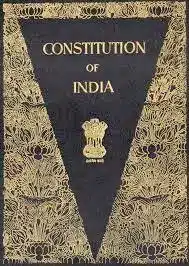
Features of Fundamental Rights
- Fundamental rights are different from ordinary legal rights in the manner in which they are enforced. If a legal right is violated, the aggrieved person cannot directly approach the SC bypassing the lower courts. He or she should first approach the lower courts.
- Some of the fundamental rights(Article 15, 16, 19, 29 and 30) are available to all citizens while the rest are for all persons (citizens and foreigners).
- Fundamental rights are not absolute rights. They have reasonable restrictions, which means they are subject to the conditions of state security, public morality and decency and friendly relations with foreign countries.
- They are justiciable, implying they are enforceable by courts. People can approach the SC directly in case of violation of fundamental rights.
- Fundamental rights can be amended by the Parliament by a constitutional amendment but only if the amendment does not alter the basic structure of the Constitution.
- Fundamental rights can be suspended during a national emergency. But, the rights guaranteed under Articles 20 and 21 cannot be suspended.
- The application of fundamental rights can be restricted in an area which has been placed under martial law or military rule.
Fundamental Rights Available Only to Citizens
The following is the list of fundamental rights that are available only to citizens (and not to foreigners):
- Prohibition of discrimination on grounds of race, religion, caste, gender or place of birth (Article 15).
- Equality of opportunity in matters of public employment (Article 16).
- Protection of freedom of:(Article 19)
- Speech and expression
- Association
- Assembly
- Movement
- Residence
- Profession
- Protection of the culture, language and script of minorities (Article 29).
- Right of minorities to establish and administer educational institutions (Article 30).
Importance of Fundamental Rights
- Fundamental rights are very important because they are like the backbone of the country. They are essential for safeguarding the people’s interests.
- According to Article 13, all laws that are violative of fundamental rights shall be void. Here, there is an express provision for judicial review. The SC and the High Courts can declare any law unconstitutional on the grounds that it is violative of the fundamental rights. Article 13 talks about not just laws, but also ordinances, orders, regulations, notifications, etc.
Amendability of Fundamental Rights
- Any changes to the fundamental rights require a constitutional amendment that should be passed by both the Houses of Parliament. The amendment bill should be passed by a special majority of Parliament.
- As per the Constitution, Article 13(2) states that no laws can be made that take away fundamental rights.
- The question is whether a constitutional amendment act can be termed law or not.
- In the Sajjan Singh case of 1965, the Supreme Court held that the Parliament can amend any part of the Constitution including fundamental rights.
- But in 1967, the SC reversed its stance taken earlier when in the verdict of the Golaknath case, it said that the fundamental rights cannot be amended.
- In 1973, a landmark judgement ensued in the Kesavananda Bharati case, where the SC held that although no part of the Constitution, including Fundamental Rights, was beyond the Parliament’s amending power, the “basic structure of the Constitution could not be abrogated even by a constitutional amendment.”
- This is the basis in Indian law in which the judiciary can strike down any amendment passed by Parliament that is in conflict with the basic structure of the Constitution.
- In 1981, the Supreme Court reiterated the Basic Structure doctrine.
- It also drew a line of demarcation as April 24th, 1973 i.e., the date of the Kesavananda Bharati judgement, and held that it should not be applied retrospectively to reopen the validity of any amendment to the Constitution which took place prior to that date.
Doctrine of Severability
- This is a doctrine that protects the fundamental rights enshrined in the Constitution.
- It is also known as the Doctrine of Separability.
- It is mentioned in Article 13, according to which all laws that were enforced in India before the commencement of the Constitution, inconsistent with the provisions of fundamental rights shall to the extent of that inconsistency be void.
- This implies that only the parts of the statute that is inconsistent shall be deemed void and not the whole statue. Only those provisions which are inconsistent with fundamental rights shall be void.
Doctrine of Eclipse
- This doctrine states that any law that violates fundamental rights is not null or void ab initio, but is only non-enforceable, i.e., it is not dead but inactive.
- This implies that whenever that fundamental right (which was violated by the law) is struck down, the law becomes active again (is revived).
- Another point to note is that the doctrine of eclipse applies only to pre-constitutional laws (laws that were enacted before the Constitution came into force) and not to post-constitutional laws.
- This means that any post-constitutional law which is violative of a fundamental right is void ab initio.
Also, refer :
- Important Articles Of the Indian Constitution
- Difference Between Fifth Schedule And Sixth Schedule
- Top 50 Science MCQs For Competitive Exams
- Know About The Different Financial Sector Regulators In India
- Download the pdf of Important MCQs From the History Of Ancient India
- List Of Important Inscriptions In India

